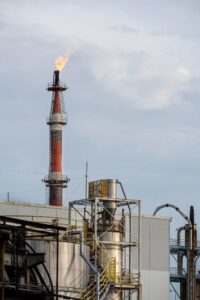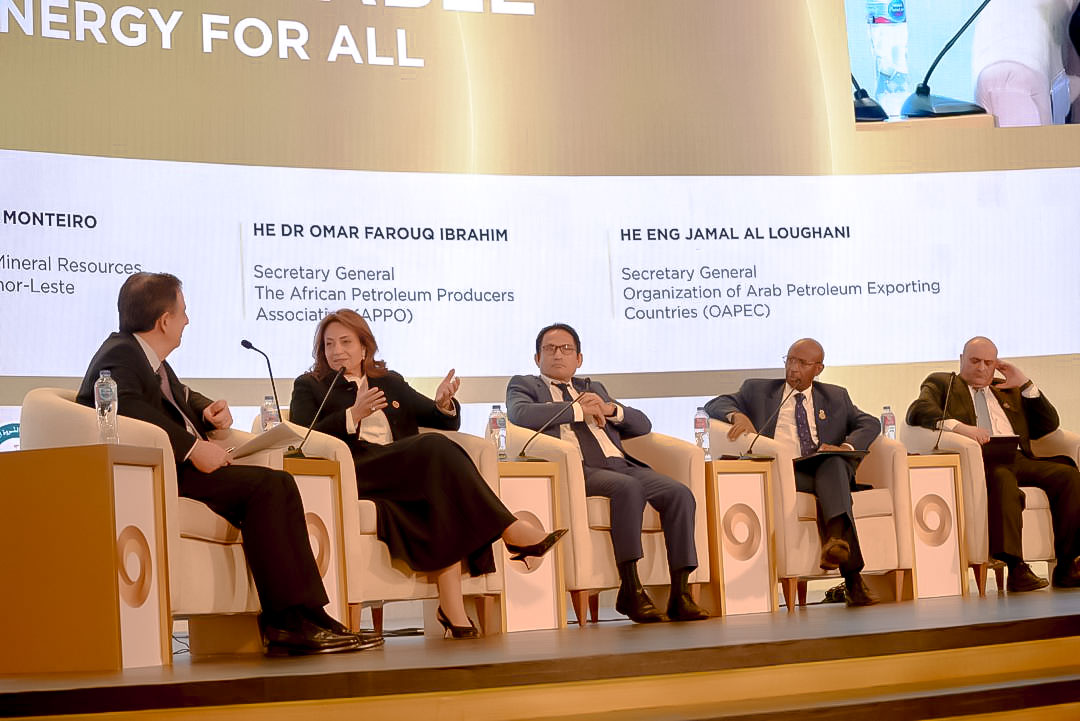Gas flaring and methane emissions are two important issues that must be addressed by the oil industry in Africa, if it is to continue to operate in a sustainable and environmentally friendly manner. APPO, aware of this important challenge, engages its members to exchange around the latest developments and strategies for minimizing gas flaring and methane emissions in industry operations.
 The figures are impressive: 139 billion cubic meters of gas burned each year (WB), 135 million tons of methane released into the atmosphere in 2022: there is plenty to look into this question. And for an organization like APPO, resolutely committed to the continuation of the exploitation of hydrocarbons, in a harmonious and environmentally friendly framework, rather than to the abandonment of said energies, it made sense that this subject should be debated. And for good reason. Cutting routine gas flaring and reducing fugitive methane emissions are among the priority pathways for the oil and gas industry to contribute to the reduction of greenhouse gas emissions and climate change mitigation. This is why the APPO NOC CEO’s Forum, at its 4th meeting, focused on continuing investments in the oil and gas sector, in a situation of improving environmental credentials and reducing the industry’s emissions. In line with this, APPO Secretariat is organizing a Roundtable on Gas Flaring and Fugitive Methane Emissions, in collaboration with the Ghana Petroleum Commission on 21 and 22 May 2024 in Accra, Ghana.
The figures are impressive: 139 billion cubic meters of gas burned each year (WB), 135 million tons of methane released into the atmosphere in 2022: there is plenty to look into this question. And for an organization like APPO, resolutely committed to the continuation of the exploitation of hydrocarbons, in a harmonious and environmentally friendly framework, rather than to the abandonment of said energies, it made sense that this subject should be debated. And for good reason. Cutting routine gas flaring and reducing fugitive methane emissions are among the priority pathways for the oil and gas industry to contribute to the reduction of greenhouse gas emissions and climate change mitigation. This is why the APPO NOC CEO’s Forum, at its 4th meeting, focused on continuing investments in the oil and gas sector, in a situation of improving environmental credentials and reducing the industry’s emissions. In line with this, APPO Secretariat is organizing a Roundtable on Gas Flaring and Fugitive Methane Emissions, in collaboration with the Ghana Petroleum Commission on 21 and 22 May 2024 in Accra, Ghana.
What is gas flaring?
When oil is extracted, it often rises to the surface accompanied by water and gas, called “associated gas”. After being separated from the oil, this gas is often “flared”, i.e. burned on site. This operation is manifested by a flame coming out of a flare. The practice has persisted from the beginning of oil production over 160 years ago and takes place due to a range of issues, from market and economic constraints to lack of appropriate regulation and political will. Flaring is a monumental waste of a valuable natural resource that should either be used for productive purposes, such as generating power, or conserved. For instance, and as per the World Bank, the amount of gas that is currently being flared each year – about 139 billion cubic meters – could power the whole of sub-Saharan Africa.
Methane emissions
Sometimes, the gas that rises to the surface is released into the atmosphere without being burned. This operation makes it possible to put methane, a greenhouse gas with a warming potential much higher than that of the CO2 produced by flaring, directly into the atmosphere. The International Energy Agency posits that the global energy industry is responsible for 135 million tons of methane released into the atmosphere in 2022. Today, the energy sector accounts for around 40% of total methane emissions attributable to human activity, second only to agriculture. Methane is responsible for around 30% of the rise in global temperatures since the Industrial Revolution. It dissipates faster than carbon dioxide but is a much more powerful greenhouse gas during its short lifespan. Cutting methane emissions is recognized as one of the most effective ways to limit global warming and improve air quality in the near term. The good news is that it is believed that methane emissions from oil and gas alone could be reduced by 75% with existing technologies and this three-quarters of retained methane could be brought to market.
APPO’s commitment
In its mission to promote cooperation among its Member Countries and with other international institutions in the field of hydrocarbons and to foster fruitful collaboration and partnerships while utilizing Petroleum as a catalyst for energy security, sustainable development, and economic diversification in Africa, APPO has set itself, among other strategic objectives, the promotion of environmental protection and management policies. The objective of organizing this roundtable is to update participants on the latest developments and strategies on how to minimize gas flaring and methane emissions in oil and gas industry operations. In addition, the roundtable will provide a platform for industry experts and operators to review case studies and best practices, exchange knowledge and experiences, and formulate a common strategy to reduce emissions to ensure that Africa’s oil and gas resources continue to be exploited in a sustainable manner. All of this will ultimately enable the oil and gas industry to improve its environmental credentials by cutting scope 1 and 2 carbon emissions.



